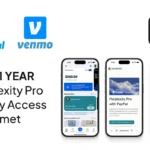Now Reading: How Anyone Can Start Earning Commissions Today (Affiliate Marketing With No Experience)
-
01
How Anyone Can Start Earning Commissions Today (Affiliate Marketing With No Experience)
How Anyone Can Start Earning Commissions Today (Affiliate Marketing With No Experience)

Have you ever wondered how people make money online while they sleep? Affiliate marketing might be the answer you’re looking for. I’ve spent years helping beginners navigate the world of online income, and I can tell you that affiliate marketing with no experience is not only possible-it’s a legitimate path to earning commissions without specialized skills or previous knowledge.
In this comprehensive guide, I’ll walk you through everything you need to know to start your affiliate marketing journey from absolute scratch, even if you’ve never earned a single cent online before.
Key Takeaways
To start affiliate marketing with no experience:
- Choose a niche that interests you and has profit potential
- Join free affiliate programs like Amazon Associates or ShareASale
- Create a platform (blog, social media, or YouTube channel)
- Produce valuable content that incorporates your affiliate links
- Focus on building an audience before expecting significant sales
- Learn basic SEO to increase your organic traffic
- Be patient and consistent – success takes time
What Is Affiliate Marketing?
Affiliate marketing is a performance-based business model where you (the affiliate) earn commissions for recommending products or services to your audience. When someone purchases through your special tracking link, you receive a percentage of the sale amount. The beauty of this system is its simplicity-you don’t need to create products, handle inventory, or manage customer service.
The process works in five basic steps:
- You find a product you want to promote
- You sign up for that company’s affiliate program
- You receive a special tracking link
- You share that link with your audience
- You earn a commission when someone buys through your link
The global affiliate marketing industry is valued at over $12 billion and continues to grow as more businesses shift to online sales. This creates abundant opportunities for newcomers to carve out their own piece of this lucrative pie.
Useful Articles:
Choosing Your Niche
Find Your Passion And Profit Intersection
The first crucial step in starting affiliate marketing with no experience is selecting the right niche. Your niche should ideally sit at the intersection of three factors:
- Your personal interests or knowledge
- Profit potential
- Manageable competition
Personal interests are important because you’ll be creating content about this topic regularly. Choose something that genuinely excites you, or you’ll quickly lose motivation.
Profit potential ensures your efforts will actually generate income. Some niches have higher-paying affiliate programs than others.
Competition level determines how difficult it will be to stand out. Extremely competitive niches might be hard to break into as a beginner.
Popular Affiliate Marketing Niches
Some consistently profitable niches include:
- Travel
- Personal finance
- Health and fitness
- Technology and gadgets
- Home improvement
- Dating and relationships
- Beauty and skincare
- Gaming
For example, if you’re passionate about coffee, you could create content about brewing methods, equipment reviews, and specialty beans-all while promoting related products through affiliate links.
Niche Research Tips
Before finalizing your niche:
- Search for “[your niche] + affiliate program” to see what options exist
- Check commission rates across different programs in that niche
- Analyze the competition by searching for your main keywords
- Look for niches with engaged communities and buying intent
It’s better to choose a smaller, more focused niche than to compete in a broad category. For instance, instead of “fitness,” you might focus on “home workouts for busy parents” or “strength training for women over 40.”
Finding Affiliate Programs
Types Of Affiliate Programs
There are three main ways to find affiliate programs:
- Direct programs – Companies that run their own affiliate programs
- Affiliate networks – Platforms that connect affiliates with multiple merchants
- Marketplace programs – Large retailers like Amazon with extensive product catalogs
Joining Affiliate Networks
Affiliate networks are perfect for beginners because they provide access to multiple programs in one place. Some popular networks that don’t charge to join include:
- ShareASale
- Amazon Associates
- CJ Affiliate (formerly Commission Junction)
- Awin
- ClickBank
When evaluating programs, consider:
- Commission structure – Fixed fee or percentage of sales
- Cookie duration – How long you get credit for a referral
- Payment threshold and methods – Minimum payout amounts and options
- Program reputation – Read reviews from other affiliates
Beginner-Friendly Affiliate Programs
If you’re just starting out, these programs are relatively easy to join:
- Amazon Associates – Offers access to millions of products but has lower commission rates (1-10%)
- ShareASale – Features thousands of merchants across various niches
- ClickBank – Specializes in digital products with higher commission rates (up to 75%)
I recommend starting with 2-3 programs maximum to avoid spreading yourself too thin. Focus on products you genuinely believe in and would recommend to friends or family.
Useful Articles:
Building Your Platform
Free Platform Options
You don’t need to invest money to start affiliate marketing. Here are several free platform options:
Social Media Platforms:
- Instagram – Great for visual products and lifestyle niches
- TikTok – Perfect for short, engaging demonstrations
- Pinterest – Excellent for DIY, home decor, and fashion
- X (Twitter) – Good for quick tips and links
- Facebook Groups – Build a community around your niche
Content Platforms:
- Medium – Free blogging platform with built-in audience
- YouTube – Video content with high engagement potential
- Quora – Answer questions in your niche and include relevant links
Creating A Website
While not strictly necessary to start, a website gives you more control and professional presence. If you decide to create one:
- Choose a domain name related to your niche
- Select affordable hosting (many options under $5/month)
- Install WordPress (free and user-friendly)
- Select a simple theme (many free options available)
The entire process of setting up a basic website can be completed in under an hour, even for complete beginners.
Platform Selection Strategy
The best platform depends on:
- Your content creation strengths (writing, speaking, photography)
- Where your target audience spends time
- The type of products you’re promoting
For example, if you’re promoting visual products like fashion or home decor, Instagram or Pinterest might be ideal. For technical products that require explanation, YouTube or a blog would be better choices.
Creating Compelling Content
Content Types That Convert
Successful affiliate marketers use various content formats to promote products:
Review Posts – Detailed evaluations of products with pros and cons
Comparison Articles – “Product A vs. Product B” to help readers decide
Tutorial Content – How-to guides that incorporate affiliate products
Resource Pages – Collections of recommended tools and products
Problem-Solution Content – Addressing specific pain points
The most effective content provides genuine value before promoting anything. Focus on solving problems for your audience rather than pushing products.
Content Creation Tips
To create high-quality content that converts:
- Research thoroughly before writing or recording
- Include personal experiences with products when possible
- Be honest about both positives and negatives
- Use clear, conversational language
- Include visuals (images, screenshots, videos)
- Format content for easy scanning (headings, bullet points, short paragraphs)
SEO Basics For Beginners
Search engine optimization helps people find your content. Here are the fundamentals:
Keyword Research:
- Use free tools like Google’s Keyword Planner or Ubersuggest
- Focus on long-tail keywords (e.g., “best digital marketing tools for beginners” instead of just “marketing tools”)
- Look for keywords with decent search volume and lower competition
On-Page Optimization:
- Include your target keyword in titles, headings, and throughout the content
- Write compelling meta descriptions
- Optimize images with descriptive alt text
- Create internal links between related content
- Ensure your site loads quickly
Secondary Keywords:
Incorporate semantically related terms throughout your content. For example, if your primary keyword is “healthy diet,” include terms like “balanced meals,” “whole foods,” and “plant-based recipes.”
Remember that SEO is a long-term strategy. It may take 3-6 months to see significant results from your optimization efforts.
Useful Articles:
Implementing Affiliate Links
Best Practices For Affiliate Links
How you present affiliate links significantly impacts conversion rates:
- Be transparent – Always disclose that you use affiliate links
- Use contextual placement – Insert links where they naturally fit in the content
- Create both text and button links – Different formats appeal to different users
- Use link cloaking – Create cleaner, branded links (e.g., yoursite.com/recommendation instead of long affiliate URLs)
- Track performance – Monitor which links get clicks and conversions
Link Disclosure Requirements
Legal requirements in most countries mandate that you disclose affiliate relationships. A simple statement like “This post contains affiliate links. If you purchase through these links, I may earn a commission at no additional cost to you” is sufficient.
Place this disclosure near the top of your content before any affiliate links appear.
Link Management Tools
As you grow, consider using these tools to manage your affiliate links:
- Pretty Links (WordPress plugin)
- ThirstyAffiliates
- Lasso
- GeniusLink (especially for Amazon affiliates)
These tools help track clicks, organize links, and automatically update outdated links across your platform.
Driving Traffic To Your Content
Free Traffic Methods
Building an audience without spending money requires creativity and consistency:
Social Media Strategies:
- Join and participate in niche-related groups
- Create shareable infographics and quote images
- Respond to comments and engage with followers
- Use relevant hashtags to increase discoverability
Community Engagement:
- Answer questions on forums like Reddit and Quora
- Comment thoughtfully on related blogs
- Participate in online communities where your audience gathers
- Collaborate with other content creators for cross-promotion
Content Distribution:
- Repurpose content across multiple platforms
- Send content to relevant newsletters in your niche
- Submit guest posts to established websites
- Create Pinterest boards with your content
Building An Email List
Email marketing remains one of the most effective channels for affiliate promotions:
- Offer a valuable free resource (guide, template, checklist) in exchange for email addresses
- Set up a free account with providers like MailerLite or SendinBlue
- Create a welcome sequence that introduces subscribers to your best content
- Send regular newsletters with valuable information and occasional promotions
An email list gives you direct access to your audience without depending on social media algorithms or search rankings.
Consistency Is Key
Traffic building is a marathon, not a sprint. Commit to a realistic publishing schedule and stick to it. Even posting once a week consistently is better than publishing sporadically.
Optimizing For Conversions
Understanding Your Audience
The better you understand your audience, the more effectively you can recommend products:
- Monitor comments and questions to identify pain points
- Create audience personas with specific needs and preferences
- Survey your audience about their challenges and goals
- Track which content resonates most with your followers
Testing And Tracking
Continuously improve your conversion rates by:
- Testing different call-to-action phrases
- Comparing conversion rates between text links and buttons
- Analyzing which content types generate the most sales
- Monitoring seasonal trends in your niche
Most affiliate programs provide reporting dashboards to track your performance. Bookmark these pages and check them regularly to identify patterns and opportunities.
Building Trust With Your Audience
Trust is the foundation of successful affiliate marketing:
- Only recommend products you genuinely believe in
- Be honest about limitations and potential drawbacks
- Share personal experiences and results when possible
- Respond promptly to questions about recommended products
- Maintain consistency in your content quality and recommendations
Common Mistakes To Avoid
Beginner Pitfalls
Learn from others’ mistakes to accelerate your success:
- Promoting too many products – Focus on a few quality recommendations
- Choosing products solely based on commission rates – Relevance and quality matter more
- Neglecting to disclose affiliate relationships – This can damage trust and violate regulations
- Creating thin content focused only on sales – Provide value first, promote second
- Expecting overnight success – Affiliate marketing requires patience and persistence
- Ignoring analytics – Data helps you understand what’s working
Unrealistic Expectations
Many beginners quit because they have unrealistic timelines. Understand that:
- Most successful affiliate marketers took 6-12 months to see significant income
- Initial earnings are typically small (often under $100/month)
- Growth usually follows a hockey stick curve-slow at first, then accelerating
Set realistic goals and celebrate small wins along the way.
Scaling Your Affiliate Business
Expanding Your Reach
Once you’ve established a foundation, consider these growth strategies:
- Diversify your content formats (add video if you started with text)
- Explore additional traffic sources
- Test new affiliate programs and product categories
- Outsource certain tasks to free up your time
- Reinvest some earnings into paid promotion
From Side Hustle To Full-Time Income
Many successful affiliate marketers follow this progression:
- Start as a side hustle while maintaining other income
- Reinvest early earnings into growth (better tools, outsourcing)
- Expand content production as results improve
- Diversify income streams (multiple affiliate programs, digital products)
- Scale to full-time income through systems and outsourcing
Success Stories And Examples
Real-world examples prove that affiliate marketing with no experience can lead to significant success:
- Deals Viking – An Amazon affiliate site that earned $3,000 in profits within its first three months by helping shoppers find the best deals
- Niche bloggers – Many have built six-figure businesses by focusing on specific topics like coffee, digital marketing tools, or home workouts
- YouTube reviewers – Content creators who started with simple product reviews and built substantial audiences
These success stories share common elements: consistency, audience focus, and gradual improvement over time. Starting affiliate marketing with no experience might seem daunting, but with the right approach, anyone can build a successful affiliate business.
Now it’s your turn to take that first step into the world of affiliate marketing.





















